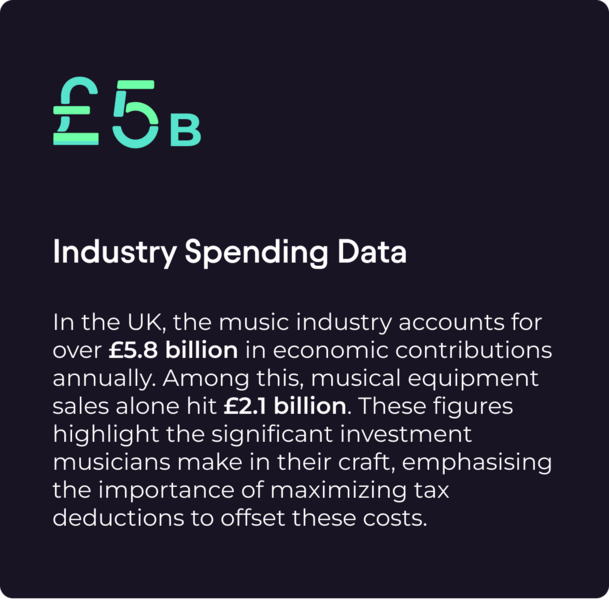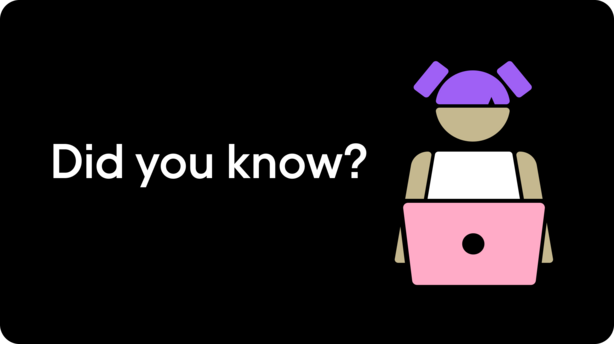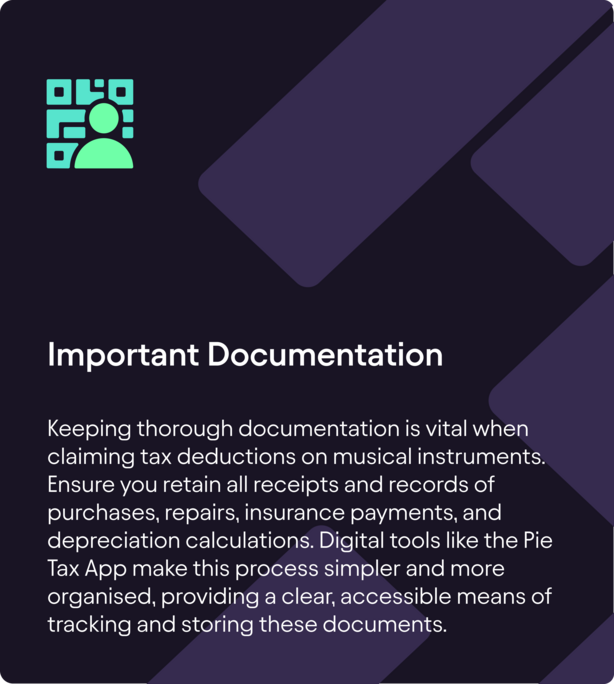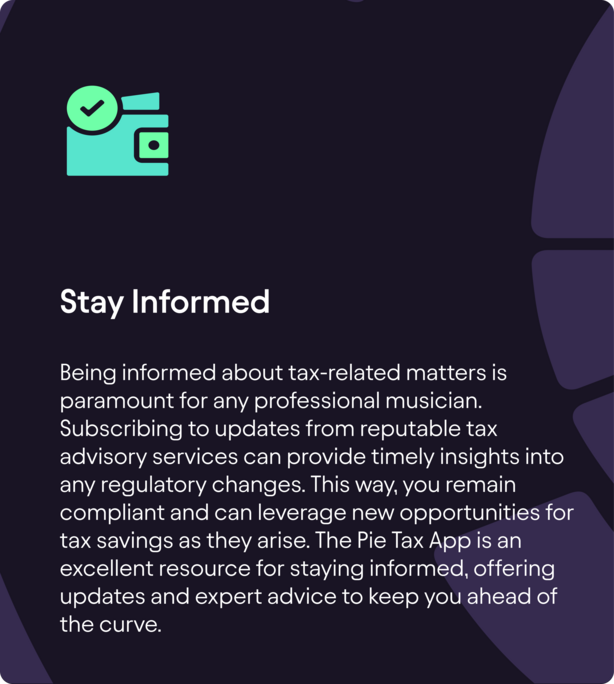Understanding Tax Deductions for Musicians

As a musician, your musical instruments aren't just tools of the trade; they can also be key to reducing your taxable income. Understanding how to take advantage of these deductions can substantially lower your tax liability. In this comprehensive guide, we'll delve into the specifics of tax deductions for musical instruments, helping you navigate the tax landscape with ease.
Musicians face unique financial challenges, given the nature of their profession. From buying new instruments to maintaining and repairing the ones they already have, expenses can quickly add up. Fortunately, HMRC allows musicians to deduct certain expenses related to their profession. This can include the cost of purchasing new instruments, repairs, and even insurance premiums, making a significant difference in their overall tax bill.
To simplify this often complex process, we're here to offer expert advice and solutions through the Pie Tax App. With our insights, you can ensure that you are not leaving money on the table by missing out on these valuable deductions. Let's explore how you can maximize your tax savings by making the most of these allowable deductions.
Claiming Instrument Purchases
One of the most significant deductions musicians can claim is the cost of purchasing new musical instruments. Whether you're buying a grand piano, a new saxophone, or upgrading your recording equipment, these expenses can be substantial.
According to HMRC, these costs fall under the category of "capital expenditures," which can be written off against your taxable income. However, to qualify, you must prove that these instruments are purchased for professional use and not as a hobby.


Deductions for Instrument Repairs
Besides buying new instruments, maintaining and repairing your existing ones are also deductible expenses. Wear and tear are inevitable, and repairs can be a significant outlay for professional musicians. HMRC allows you to deduct the cost of repairs under "allowable expenses" so long as these are necessary to keep your instruments in working condition for your professional use. Receipts and proper documentation are crucial here for substantiating your claims. The Pie Tax App can store all your repair receipts, making it easy to track and claim these deductions.



Depreciation of Instruments
Depreciation is another essential factor when considering tax deductions for musical instruments. Instruments lose value over time, and recognizing this depreciation can help reduce your taxable income further. HMRC allows you to depreciate your instruments over several years, spreading the initial cost over the useful life of the instrument. The Pie Tax App simplifies this process by helping you track the depreciation and claim it correctly.
Understanding how to calculate and claim depreciation can be complex, but it's an invaluable deduction for ongoing savings. The Pie Tax App's expert tax assistants are available to guide you through this process, ensuring you get the maximum benefit. By properly accounting for depreciation, musicians can continue to benefit from deductions beyond the initial purchase year.
Accounting for Instrument Insurance
One often-overlooked deductible expense for musicians is the cost of insuring their instruments. Insurance premiums for safeguarding your instruments against theft, damage, or loss can be hefty but are considered an allowable expense. By claiming these premiums, musicians can lower their taxable income, leading to noticeable tax savings.
Proper documentation of insurance payments is crucial. The Pie Tax App provides an easy way to track and record these expenses, ensuring they are claimed without hassle. Having expert tax assistants available on the Pie app can also provide invaluable insight into maximizing these deductions, ensuring you get the full benefit of insuring your instruments.

Tips for musicians

Track All Income Sources Keep detailed records of all income, including gigs, royalties, and teaching fees. Accurate tracking helps ensure correct tax reporting and maximises deductions.

Claim Allowable Expenses Musicians can claim expenses like instruments, travel, and studio costs. Properly documented expenses can significantly reduce your tax bill and increase your savings.

Consider Home Studio Costs If you work from a home studio, you can claim a portion of your household bills. This includes utilities and rent, helping to lower your overall tax liability.

Interesting Tax Fact
Did you know that musical instrument depreciation can extend up to 15 years? This extended depreciation period provides significant tax savings over an extended timeframe, allowing musicians to continue benefiting from their initial investment long after their purchase. Properly documenting and claiming this depreciation ensures ongoing benefits, making it an essential aspect of tax planning for professional musicians.
Expert Advice for Musicians

To maximize your tax savings, it's crucial to keep diligent records of all expenses related to your musical instruments. This includes purchases, repairs, insurance, and even depreciation. The Pie Tax App provides a streamlined solution for tracking and documenting these expenses effortlessly throughout the year, so you're prepared come tax season. Using experts through the Pie Tax App can help identify further deductions and ensure compliance with HMRC regulations.
Another key piece of advice is to stay informed about any changes in tax laws that may affect you as a musician. Tax regulations can evolve, and staying updated ensures that you always take full advantage of the deductions available to you. The Pie Tax App keeps you informed of any such changes, helping you stay ahead of the curve and optimize your tax savings continually.


Summary
Tax deductions for musical instruments can provide significant savings for professional musicians by lowering taxable income. Whether it's the cost of new instruments, repairs, insurance, or depreciation, understanding and correctly claiming these deductions is essential for financial efficiency. The Pie Tax App simplifies this process by offering comprehensive tracking and expert advice, ensuring that you're maximising your deductions and staying compliant with HMRC regulations.
Musicians who diligently track their expenses and stay informed about applicable tax rules can substantially reduce their tax burden. With digital tools like the Pie Tax App and personalised assistance from expert tax assistants available on the Pie app, professionals in the music industry can confidently manage their finances, allowing them to focus more on their craft and less on administrative burdens.
Frequently Asked Questions
Are all musical instrument expenses tax-deductible?
Yes, many instrument-related expenses are deductible if they are for professional use. This includes purchases, repairs, and insurance premiums, among others.
How do I prove my instrument expenses are for professional use?
Keeping detailed records and receipts is essential. The Pie Tax App can help you document and categorize these expenses properly.
Can I deduct the cost of instrument insurance?
Absolutely. Insurance premiums for your instruments are considered an allowable expense, reducing your taxable income.
How long can I depreciate my musical instruments?
Under HMRC regulations, depreciation can extend up to 15 years, allowing for ongoing tax deductions.
What happens if I get new instruments frequently?
You can continue to claim deductions for each new purchase, provided you maintain accurate records and use them for professional purposes. The Pie Tax App can help you manage this efficiently.




